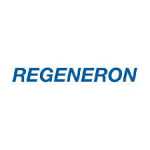
23 Jun Atopic Dermatitis – Eczema: Dupilumab plus Topical Corticosteroids Improved Symptoms and Quality of Life in Children with Severe Disease
MedicalResearch.com Interview with:

Dr. Shumel
Brad Shumel, MD
Senior Director of Medical Affairs, Immunology
Regeneron
MedicalResearch.com: What is the background for this study?
Response: Atopic dermatitis is a chronic inflammatory disease and one of the most common skin disorders in children. Severe atopic dermatitis is characterized by skin lesions that often cover a large body surface area and can include intense, persistent itch. Uncontrolled moderate-to-severe atopic dermatitis can have a physical, emotional and psychosocial impact on children, resulting in sleep deprivation, activity restriction, poor school performance, depression and anxiety that can have a greater impact on quality-of-life.
The standard of care for this pediatric population has been topical corticosteroids. Children with severe atopic dermatitis who remain uncontrolled with topical therapies have limited treatment options.
This Phase 3 trial was conducted to evaluate the safety and efficacy of dupilumab plus topical corticosteroids (TCS) compared with TCS alone in children with uncontrolled severe atopic dermatitis across two treatment arms – every four weeks and every two weeks (Q4W and Q2W).
MedicalResearch.com: What are the main findings?
Response: At 16 weeks, both the Q4W and Q2W dupilumab plus TCS regimens showed clinically meaningful and statistically significant improvement versus TCS alone in all pre-specified endpoints. More than twice as many children achieved clear or almost clear skin compared to TCS alone (IGA 0/1: 32.8% Q4W, 29.5% Q2W, 11.4% TCS alone) and more than two-thirds experienced at least a 75% overall improvement of their disease with dupilumab (EASI-75: 69.7% Q4W, 67.2% Q2W, 26.8% TCS alone). Additionally, more than four times as many children treated with dupilumab achieved at least a four-point reduction in worst itch score compared to TCS alone (≥4 PP-NRS: 50.8% Q4W, 58.3% Q2W, 12.3% TCS alone).
The optimal dupilumab doses for efficacy and safety were 300mg Q4W in children weighing less than 30kg and 200mg Q2W in children weighing at least 30kg.
Conjunctivitis and injection site reactions were more common with patients treated with dupilumab plus TCS than TCS alone. Most adverse events were mild-to-moderate in severity, and did not result in treatment discontinuation.
MedicalResearch.com: What should readers take away from your report?
Response: Dupilumab significantly improved signs, symptoms and quality of life in children with severe atopic dermatitis, and was well-tolerated. It was approved by the FDA earlier this year for children (6-11 years) with uncontrolled, moderate-to-severe atopic dermatitis, and is the first and only biologic medicine approved for this pediatric population.
MedicalResearch.com: What recommendations do you have for future research as a result of this work?
Response: Additional data on long-term efficacy and safety in this patient population would be valuable and is currently underway. Additionally, more exploration on the effective treatment of atopic dermatitis on pediatric growth patterns and family dynamics are potentially rich areas for future research.
MedicalResearch.com: Is there anything else you would like to add?
Response: Dupilumab works differently from existing therapies by targeting the type 2 inflammation that underlies the disease, rather than broadly suppressing the immune system. Specifically, it is a fully-human monoclonal antibody that inhibits the signaling of the interleukin-4 (IL-4) and interleukin-13 (IL-13) proteins, which are key drivers of the type 2 inflammation that plays a major role in not only atopic dermatitis, but also asthma and chronic rhinosinusitis with nasal polyps.
Disclosure: I am a Regeneron employee and shareholder.
Citation:
Amy S. Paller, Elaine C. Siegfried, Diamant Thaçi, Andreas Wollenberg, Michael J. Cork, Peter D. Arkwright, Melinda Gooderham, Lisa A. Beck, Mark Boguniewicz, Lawrence Sher, Jamie Weisman, John T. O’Malley, Naimish Patel, Megan Hardin, Neil M.H. Graham, Marcella Ruddy, Xian Sun, John D. Davis, Mohamed A. Kamal, Faisal A. Khokhar, David M. Weinreich, George D. Yancopoulos, Bethany Beazley, Ashish Bansal, Brad Shumel,
Efficacy and safety of dupilumab with concomitant topical corticosteroids in children 6 to 11 years old with severe atopic dermatitis: a randomized, double-blinded, placebo-controlled phase 3 trial,
Journal of the American Academy of Dermatology, 2020, ISSN 0190-9622,
https://doi.org/10.1016/j.jaad.2020.06.054.
[subscribe]
[last-modified]
The information on MedicalResearch.com is provided for educational purposes only, and is in no way intended to diagnose, eendorse, cure, or treat any medical or other condition. Always seek the advice of your physician or other qualified health and ask your doctor any questions you may have regarding a medical condition. In addition to all other limitations and disclaimers in this agreement, service provider and its third party providers disclaim any liability or loss in connection with the content provided on this website.
Last Updated on June 23, 2020 by Marie Benz MD FAAD
